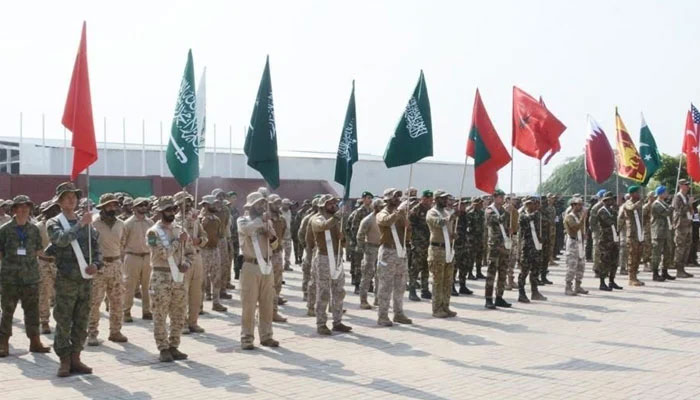The unshakable shield
Close cooperation of militarily invincible Pakistan with economically stable Gulf countries can change fate of millions of people residing in region
For the past century, the Middle East has been plagued by border tensions, territorial disputes, internal instability, and external aggression. Generally, it is believed that Pakistan's cordial ties with Gulf countries are due to ideological affiliations based on religious, cultural, and geographical reasons. However, in my view, our successful defence capabilities played a pivotal role in bringing Pakistan closer to the Arabs.
Our brave armed forces have historically demonstrated unparalleled skill, resilience and strategic effectiveness. From its brave performance during the 1965 war with India, to the Arab-Israel conflicts, and during the Soviet invasion of Afghanistan, Pakistan’s military, particularly the Pakistan Air Force (PAF), has proved that it is a professional, disciplined and battle-hardened institution that has earned respect through outstanding performance.
Pakistan has always demonstrated that it is not technology or weapons alone, but in fact the brave soldier behind the machine that defines military success. The news of the shooting down of the French-made Rafale aircraft, which was considered invincible, has also managed to become part of the top headlines in the Middle Eastern media.
Saudi Arabia is one of the most important countries in the Middle East and is a close ally of Pakistan. In the past, whenever Saudi Arabia's territorial integrity was threatened, Pakistan stepped forward to ensure defence cooperation at every critical time. It is indeed an honour that former COAS Gen Raheel Sharif has been appointed to head the Islamic Military Alliance for Counter-Terrorism established under the auspices of Saudi Arabia.
Similarly, Pakistan has never hesitated to extend its military support to other Gulf countries. Over the decades, joint military exercises with many Gulf States, including Saudi Arabia, the UAE, Oman and Qatar, have fostered tactical coordination and deepened mutual trust. Our military advisers, trainers, and even combat forces have played a pivotal role in bolstering the defence architecture of the Gulf States and have made an enduring commitment to the Middle East’s regional security and sovereignty.
Pakistan also enjoys the status of the most prominent naval power in the Arabian Sea, and Pakistani ships regularly visit the ports of various Gulf countries. In this regard, they have also signed defence agreements with Pakistan, focusing on military training, defence cooperation and joint exercises.
While military ties between Pakistan and the Gulf States are moving in the right direction, many economic dimensions of the mutual relationship remain underdeveloped. Pakistan is currently grappling with economic crises that, if not addressed in a timely manner, could weaken its ability to act as an unshakable shield of the Middle East.
Most recently, US President Donald Trump, during his visit to the Middle East, outlined the region's future. Although Iran, another key player in the Region, is losing its dominance in the region day by day due to the lack of a US-Iran deal, the clouds of war have once again started hovering over the region.
In my view, it is time for the Gulf leadership to recognise that a strong, stable and economically prosperous Pakistan is in the best interest of the entire Middle Eastern region. Just as Pakistan has stood shoulder to shoulder in times of defence needs, the Gulf must now come forward to provide robust financial support and economic partnerships.
The recent border conflict has also given Pakistan a golden opportunity to make rapid progress in defence diplomacy in the conflict-ridden Gulf region. Today, we need to deliver a clear message that Pakistan, due to its strong defence capability, can ensure the safety of its national borders and the regional security of the entire Middle Eastern region.
In my view, the close cooperation of militarily invincible Pakistan with economically stable Gulf countries can change the fate of millions of people residing in the region.
The writer is a member of the National Assembly and patron-in-chief of the Pakistan Hindu Council. He tweets/posts @RVankwani
-
 Germany’s Ruling Coalition Backs Social Media Ban For Children Under 14
Germany’s Ruling Coalition Backs Social Media Ban For Children Under 14 -
 Meghan Markle Shuts Down Harry’s Hopes Of Reconnecting With ‘disgraced’ Uncle
Meghan Markle Shuts Down Harry’s Hopes Of Reconnecting With ‘disgraced’ Uncle -
 Liza Minnelli Alleges She Was Ordered To Use Wheelchair At 2022 Academy Awards
Liza Minnelli Alleges She Was Ordered To Use Wheelchair At 2022 Academy Awards -
 Quinton Aaron Reveals Why He Does Not Want To Speak To Wife Margarita Ever Again
Quinton Aaron Reveals Why He Does Not Want To Speak To Wife Margarita Ever Again -
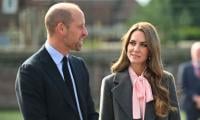 Prince William And Kate's Photos With Andrew Used In New Campaign Against Royals
Prince William And Kate's Photos With Andrew Used In New Campaign Against Royals -
 Touching Eric Dane Moment With Daughter Emerges After Viral Final Words
Touching Eric Dane Moment With Daughter Emerges After Viral Final Words -
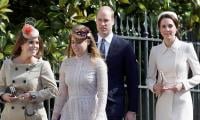 Kate Middleton Quietly Backs Princess Beatrice, Eugenie As Andrew Scandal Intensifies
Kate Middleton Quietly Backs Princess Beatrice, Eugenie As Andrew Scandal Intensifies -
 Michael B. Jordan Shares His Thoughts On Growing Trend Of Live-action Anime Adaptations
Michael B. Jordan Shares His Thoughts On Growing Trend Of Live-action Anime Adaptations -
 Why Mikaela Shiffrin Celebrated Olympic Gold With Taylor Swift Song?
Why Mikaela Shiffrin Celebrated Olympic Gold With Taylor Swift Song? -
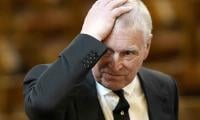 Andrew Mountbatten-Windsor Was Mentioned In Epstein Email Sent Before His Death
Andrew Mountbatten-Windsor Was Mentioned In Epstein Email Sent Before His Death -
 'Dump Eugenie And Beatrice': Andrew's Daughters Face Backlash After His Arrest
'Dump Eugenie And Beatrice': Andrew's Daughters Face Backlash After His Arrest -
 Hilary Duff Finally Addresses Ashley Tisdale's 'toxic Mom Group' Essay
Hilary Duff Finally Addresses Ashley Tisdale's 'toxic Mom Group' Essay -
 Ryan Coogler Explains Why His Latest Project 'Sinners' Is So Close To His Heart
Ryan Coogler Explains Why His Latest Project 'Sinners' Is So Close To His Heart -
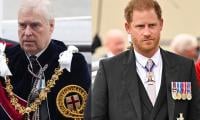 Meghan Markle, Prince Harry's Longtime Friend Shares True Feelings Of Royal Couple On Andrew Arrest
Meghan Markle, Prince Harry's Longtime Friend Shares True Feelings Of Royal Couple On Andrew Arrest -
 Who Is Punch? Here’s Everything To Know About The Viral Sensation Winning Over Internet
Who Is Punch? Here’s Everything To Know About The Viral Sensation Winning Over Internet -
 Andrew's 'mental Health' Concerns Comment Sparks Outrage On Social Media
Andrew's 'mental Health' Concerns Comment Sparks Outrage On Social Media
